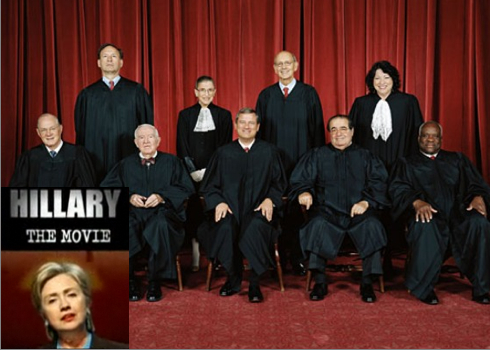Last week’s Supreme Court ruling striking down the ban on direct corporate spending in elections could allow overseas corporations — even those controlled by foreign governments — to pour money into U.S. elections, supporters of campaign-finance regulation warn.
“Clearly there’s a huge opening now,” Stephen Spaulding of Common Cause told TPMmuckraker.
The ruling affirms that corporations, like individuals, have a free-speech right to spend unlimited amounts from their general treasuries on ad campaigns that support or oppose political candidates. It’s true that foreign nationals are currently prohibited by law from making independent expenditures in U.S. elections. But that prohibition has little teeth. According to experts, it doesn’t apply to foreign-owned corporations that incorporate in the U.S., or have U.S. subsidiaries — meaning most foreign multinationals likely aren’t covered. So there’s “essentially no difference” between domestic and foreign corporations in terms of their ability to pump money into U.S. elections, says Lisa Gilbert of U.S. PIRG — a view backed by several other advocates of increased regulation.
And even if the definition of a foreign corporation were interpreted more broadly, the logic of the ruling suggests the ban may now be unconstitutional anyway. In ruling for the majority, Justice Kennedy wrote that the court’s decision did not address the issue of foreign actors — implying that the ban would remain in place. But as Justice Stevens pointed out in his dissent, the vision of free speech that the court has embraced — and the notion that corporations should be treated as individuals — could make it very difficult to support singling out foreign corporations for special restrictions. “The sweeping freedom of speech rhetoric would have applicability to foreigners,” says Edward Foley, an election-law expert at Ohio State University, who thinks the court has sent “mixed signals” on the question.
Not that we’re necessarily going to see the Chinese government rushing into the 2010 midterms. First, free speech law always involves a balance, cautions Foley, and the courts are less inclined to see overseas entities as entitled to the same protections as domestic ones. So in practice, foreign corporations may end up enjoying less freedom to act than some reform advocates fear.
In addition, Congress is already talking about legislative fixes for some aspects of the problem — there should be a formal legislative proposal as early as next week, we’re told. Broadening the definition of a foreign corporation, to close the loophole that currently exists, is one issue under discussion.
Late Update: Sure enough, Rep. Chris Van Hollen (D-MD) says he’s working on legislation to fix the problem, declaring: “There’s a big danger that the decision opens the door to foreign owned corporations indirectly spending millions of dollars to influence the outcome of U.S. elections through their American subsidiaries.”









